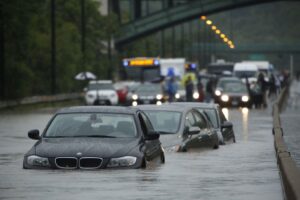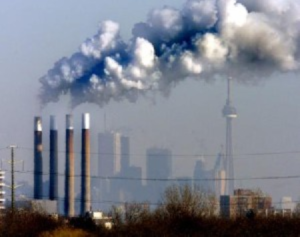Last year was one of the hottest on record and it is not getting any better.
The City warns that climate change is causing weather that is hotter, wetter and wilder and the conditions are expected to worsen.
The number of extreme heat days yearly with temperatures above 30°C has already increased from an average of 8 days in the 1950s to about 18 days a year now.
The warnings come from a Climate Change Readiness report by the City’s Environment and Climate Division that was presented on March 13 to an Infrastructure and Environment Committee.

Extreme weather will bring more rainfall, droughts and higher prices in stores as a result of climate change.
It said for every $1 of insured losses, Canadians pay an additional $3 to $4 on uninsured losses such as time lost from work, loss in property value and environmental clean-up.
By 2025, Canadians will lose about $700 from their annual income due the extreme weather, as supply-chain disruptions increase grocery prices, home insurance premiums go up, and taxes increase to pay for disaster recovery and infrastructure repairs.
It said the dangers of a changing climate could add more than $4 billion per year to the cost of maintaining Ontario’s public infrastructure over the rest of the century.
The report cited the 2023 wildfires led to more than 150,000 Canadians being displaced, and the health cost for Ontario of the harmful air pollution from these fires is estimated at $1.28 billion.

The temperature of earth is rising and it will cost the average person $700 more a year to fight off climate change, warns a City report.
The report states that if global emissions remain on their current path it could increase from 29 extreme heat days by the 2030s, to 54 days by the 2060s.
It said by 2080 Toronto will experience an increase in annual precipitation of 19 per cent, and extreme rainstorms with 30 per cent more than ever, which will lead to flooding, infrastructure damage, injuries, habitat degradation, degraded water quality, soil erosion and disruptions to services and the economy.
“Over the past year, extreme heat, wildfire, flooding, and storm events in Toronto, across Canada, and globally further illustrated how harmful and costly these events can be to residents and the assets and services that support them,” according to the study.
The impacts of climate change unfairly affects people who already have challenges coping.
“The City is leading at the cutting-edge of work to reduce emissions in Toronto,” the report states.

Climate change will cost us $4 billion more to maintain infrastructure and the extreme weather will restrict our lifestyle, experts say.
It said the Toronto is working to reduce emissions as more heat pumps are required for homes to run on clean electricity. It is also greening its corporate fleet with electric vehicles that will lead to 45 per cent in emission reduction and the TTC is also planning for a zero-emissions bus fleet by 2037.
The goal of net zero emissions by 2040 is at risk unless the City, other levels of government, residents and businesses support and invest to tackle climate challenge.
“Toronto strives to remain a livable and vibrant City for all,” according to the report. “The potential for climate change to negatively affect the City and its residents is clear.”
City officials reported that from 2005 to 2017 there were four rainstorms, an ice storm, high lake and windstorm events that cost the City $228 million. A recent Ontario study estimated a proactive approach would save $1.1 billion yearly.
The Insurance Bureau of Canada reported dramatic increases in weather-related catastrophic losses over the last decade. It noted 2022 and 2023 were two of the most expensive years for insured losses ranging up to $3.4 billion.
“Toronto Public Health in 2023 identified climate change as a significant and growing health risk facing the City,” the City said.

